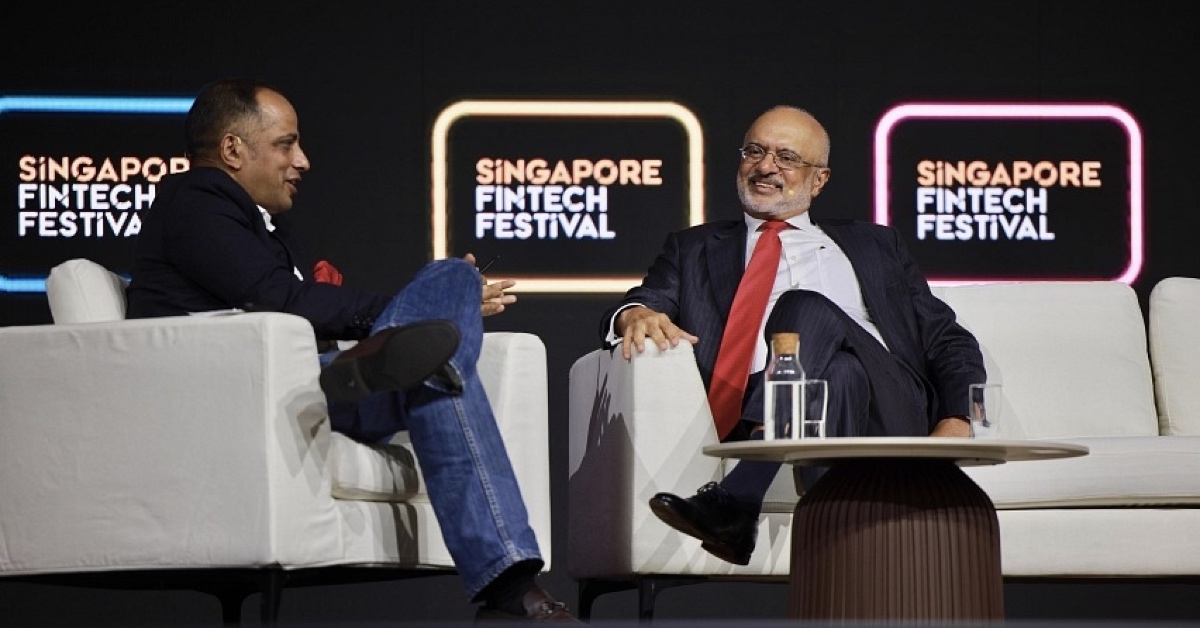Why DBS CEO is “struggling” to create jobs and plans to cut 4k temp & contract roles
Piyush Gupta, outgoing CEO of DBS, announced that they will lay off 4,000 temporary and contract staff as AI will be taking over some roles.

[Editor’s note: The article has been updated to reflect DBS’s statement.]
DBS Group Holding’s outgoing CEO, Piyush Gupta, announced that the company plans to lay off 4,000 contract and temporary staff roles over the next three years as artificial intelligence (AI) increasingly takes on roles carried out by human beings.
Gupta made this announcement at an industry conference in Mumbai, India, yesterday (February 24), where he added that permanent staff will not be affected. However, he also shared that 1,000 new positions will be added in AI, CNA reports.
In my 15 years of being a CEO, for the first time, I’m struggling to create jobs. So far, I’ve always had a line of sight to what jobs I can create. This time, I’m struggling to say how I will repurpose people to create jobs.
Piyush Gupta, outgoing CEO of DBS Group Holdings at a industry conference in Mumbai, IndiaCurrently, the company has 8,000 to 9,000 employees in such positions and has a total headcount of around 41,000 staff.
Responding to media enquiries from Vulcan Post, a spokesperson from DBS shared that the reduction in headcount will come from “natural attrition” as temporary and contract roles are completed in the next few years.
Over the next 3 years, we envisage that AI could reduce the need to renew about 4,000 temporary/ contract staff across our 19 markets working on specific projects. As such, we expect the reduction in workforce will come from natural attrition as these temporary and contract roles are completed over the next few years.
Our permanent staff across all our markets are not impacted.
A DBS spokesperson responding to media enquiries from Vulcan PostAI replacing human roles at banks
According to a Bloomberg Intelligence (BI) article in January, global banks will cut as many as 200,000 jobs in the next three to five years as AI encroaches on tasks currently carried out by human workers.
Chief information and technology officers surveyed for BI indicated that, on average, they expect a net 3% of their workforce to be cut. The report also shared that back and middle office roles and operations are most likely to be affected.
“Any jobs involving routine, repetitive tasks are at risk. But AI will not eliminate them fully, rather it will lead to workforce transformation,” stated Tomasz Noetzel, a senior analyst from Bloomberg Intelligence, who also penned the report.
However, this might lean more towards a “utopian view” for some, like Gupta. While he appreciated the perspective that people will continue to find jobs, he warned that there might be “massive dislocations,” The Hindu reports.
“We are getting a lot of jobs, the cyber security specialists, the AI people. But a lot of my traditional operations people, the clerical staff, all the time, it’s not easy for them to transition [to new jobs created],” said the banking veteran, highlighting the effects of AI on jobs.
But not all hope is lost
With that said, there are ways for those in similar positions to “change” your predicament. We previously reported the five skills that Singaporeans can build to do what machines can’t. Here’s a list:
Data analysis and critical thinking skills Building functional and job-specific expertise Project Management Creativity Advanced digital skills (eg. programming, AI literacy, etc)However, we also found that 19% of Singaporeans dedicate no time to reskill, which is above the regional average of 13%. This is where employers can play a pivotal role in helping employees build up their arsenal beyond degrees and paper qualifications.
When asked how they intend to reassure their permanent staff in terms of job security, a DBS spokesperson expressed the company’s commitment to continue investing in upskilling and reskilling its employees to be “future-ready.”
“We have identified around 13,000 staff for upskilling or reskilling and to date, over 10,000 have commenced their respective learning roadmaps, including on skills such as AI and data.”
Read more articles on Artificial Intelligence here. Read more articles we have written on Singaporean businesses here.Featured Image Credit: DBS Bank

 AbJimroe
AbJimroe 































